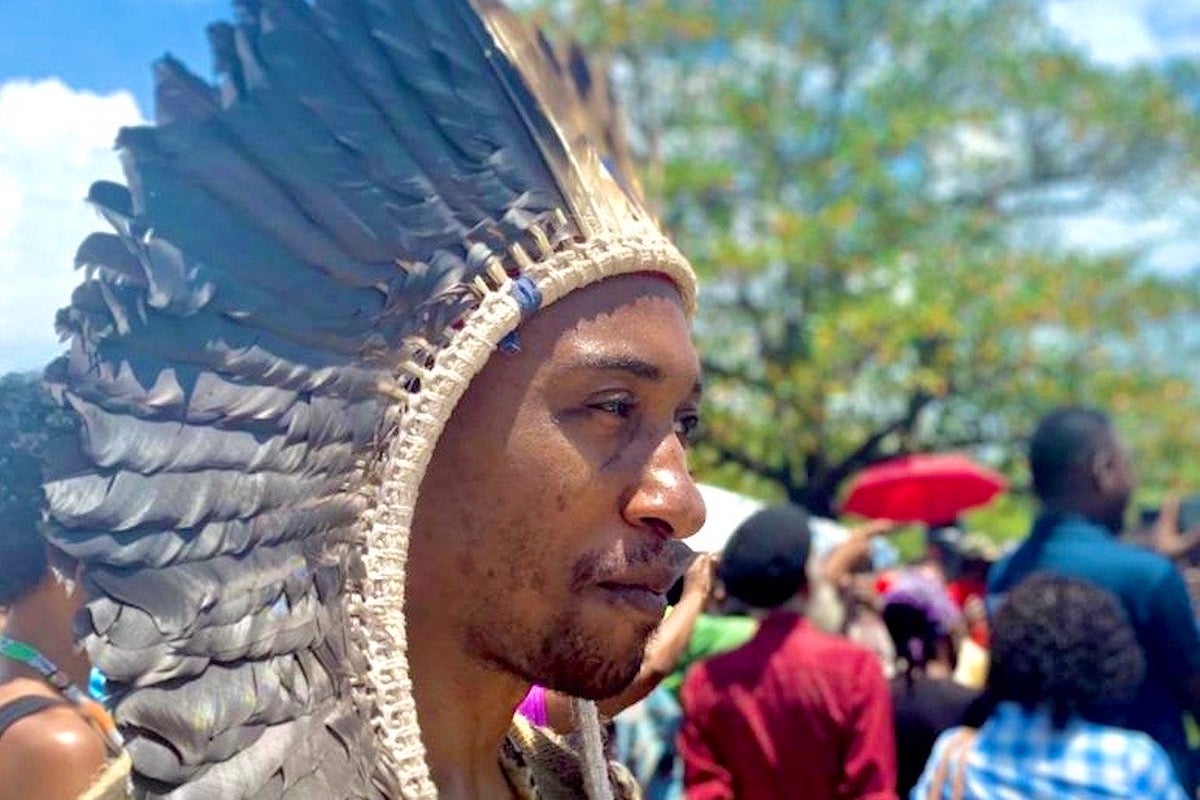KINGSTON, R.I. – March 27, 2024 – Jamaican Taíno Chief Kasike Kalaan Nibronix Kaiman will visit the University of Rhode Island on Wednesday, April 3, to discuss his culture and to address “stories as medicine” in his home context. His presentation, “Stories as Medicine: Taino and African Healing and the Environment” will take place at 4:30 p.m. in the Carothers Library Galanti Lounge, 15 Lippitt Road. This event is free and open to the public. It will also be live-streamed via the College of Arts and Sciences YouTube page.
The Taíno, a historic indigenous people of Cuba, Jamaica, Haiti, the Dominican Republic, Puerto Rico, the Bahamas, and the Lesser Antilles, were largely believed to have been wiped out following Columbus’ arrival to the Caribbean in 1492, by slavery, war, European disease and starvation. However, evidence has shown that despite their numbers dropping significantly, their culture survived and continues to thrive today.
Kaiman is a Taíno medicine man and was chosen and appointed Kasike, a Taíno Chief, for the Yukayeke Yamaye Guani (Jamaican Humming Bird Taíno People). In “Stories as Medicine,” Kaiman will address climate change, the disconnection with environmental cycles and possibilities for healing.
This talk is part of a joint endeavor between the Departments of Africana Studies at the University of Rhode Island and Northeastern University to strategize with Taíno Kasike Kalaan Kaiman on an Indigenous and African project in the rural Jamaican village of Woodside in the parish of St. Mary. The collaboration is also being supported by a five day research retreat at The Manship Artist residency in Cape Ann, Massachusetts, where Chief Kalaan, University of Rhode Island Professor Catherine John and Northeastern University Professor Kris Manjapra will spend joint time strategizing about African and Indigenous collaborations.
John, URI Africana Studies department chair, who has been working in the community since 2000, says there has been renewed interest in raising people’s awareness about the living nature of Taíno history in Jamaica.
Part of Kaiman’s discussion, she said, will focus on how knowledge of place and knowledge of history are both integral to generational healing, as is the need to share and record stories about the natural world and its significance.
“The sacredness of the physical world is very much emphasized in indigenous cultures, but to what extent is this knowledge still living, functional knowledge? And how can it benefit us in terms of our worldview–our understanding of how to treat the planet, our understanding of how to interact with each other?” said John.
# # #

